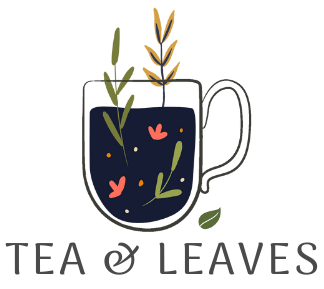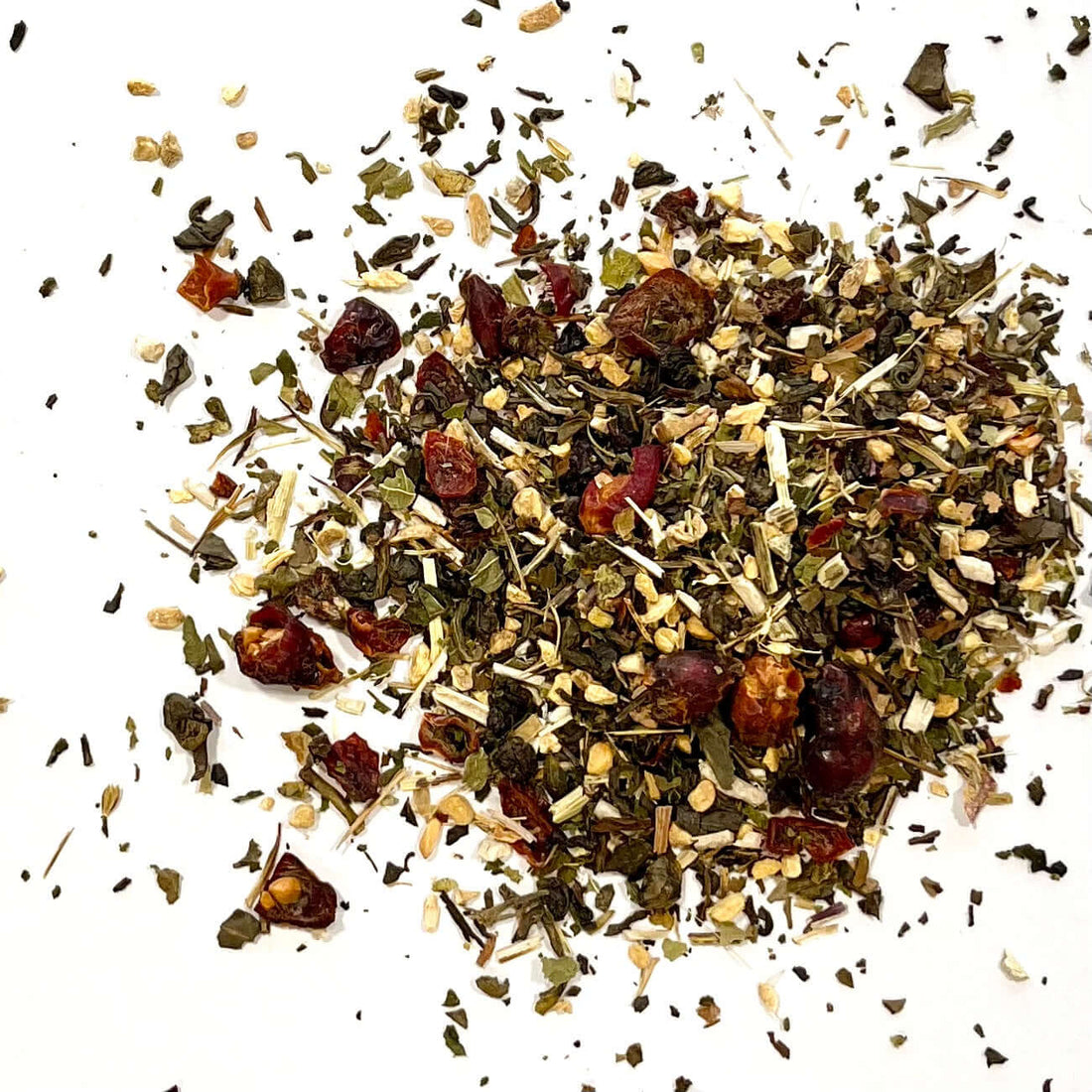You hear it so often “this herbal tea is good for the immune system”, but it doesn’t really land as a practical truth, as something that could be a truly beneficial and accessible way to make sure you don’t come down with anything too nasty too often. We thought it would be useful to lay out what we mean when we say things about our tea’s like, “good for the immune system” or “immuno-modulating”, and help you to find the right immune-tea for you!
1. Anti-viral / anti-bacterial
How do some herbs have an antiviral or antibacterial effect? Through compounds, such as polyphenols, flavonoids, and essential oils which are all found in abundance in the rosehips, nettle, and green tea in our immuni-tea!
Let’s break those down; polyphenols are known for their antioxidant effects, they exhibit antiviral activity by interfering with how a virus replicates itself. Flavonoids enhance the body's defense mechanisms against viral and bacterial invaders. Essential oils are rich in terpenes and phenols, and are antimicrobial by disrupting the cell membranes of bacteria and inhibiting viral proliferation. The synergistic interactions of these bioactive compounds create a holistic and natural defense against pathogens.
2. Immune regulating
There’s another phrase that gets thrown around - immune regulating- what does that mean? Immune-regulating refers to the way that plants -like elderberry or echinacea- *tone* your immune system; they build it up, nourish it, and strengthen it so that when a bacteria or virus does enter, it’s stronger and more prepared. Exactly how plants do this is less known and less specific. Some compounds in plants can increase or decrease immune cells and immune cell function. They may also help to support the health of the immune organ.
3. Anti-inflammatory
Chronic inflammation can negatively impact how efficiently the immune system can do its job. Anti-inflammatory herbs like turmeric possess anti-inflammatory properties, which may help regulate the immune response by reducing excessive inflammation. They reduce this inflammation though; inhibition of inflammatory triggers, reducing oxidants, COX-2 prostaglandin inhibition, and a few other ways.
4. Vitamins and minerals
Certain medicinal herbs contain essential minerals that support immune function. Oregano and thyme provide zinc, which is essential for immune cell function. Nettle, dandelion and burdock root contribute iron, which is vital for immune cell oxygenation. Herbs like tulsi and sage contain copper, important for white blood cell maturation. And thyme and cloves contain manganese, supporting immune function through enzyme activation. Minerals and vitamins are smaller, but just as essential way herbs support the immune system.
5. Adaptogenic
Adaptogens are a buzz-topic at the moment. They are essentially a group of herbs that help to modulate the body's stress response. True adaptogens grow in harsh environments and therefore have evolved compounds that help them to deal with stress, which are secondarily beneficial to us in similar, stressful life environments. This stress-regulating effect potentially prevents stress-induced immune suppression, and can have anti-inflammatory effects that contribute to a balanced immune response. Adaptogens may also influence the activity of immune cells, enhance antioxidant defense, and have immunomodulatory effects, which all help to balance immune function.
You might be surprised to hear that you’re likely already doing your immune system a favour; good-quality black tea and green tea have been shown to support the immune system through their polyphenols. They are also both mildly antimicrobial and anti-inflammatory! Green tea has been shown to improve the function of your spleen and thymus, which are essential for the immune system.
Herbal teas (and even black and green teas) support the immune system in many holistic ways. They might be the simplest and tastiest solution to preventing annual bugs and keeping you well.

